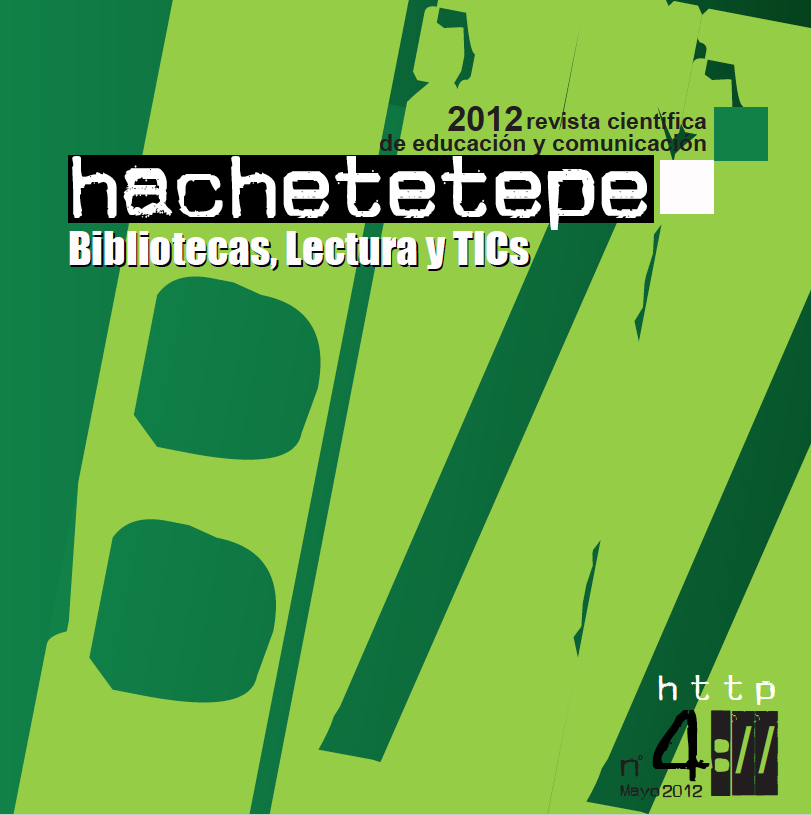Lost at Sea in the Web: Keys for a Critical Reading

Info
Abstract
The Web offers infinite possibilities to research literature: the downloading of literary texts, literary criticism and many other resources. Nowadays, we must centre our attention on training of people who are capable of a critical analysis of these materials. This article reflects upon how these new technologies are assuming a role that was traditionally considered to be the role of the school; to influence the way in which a child thinks, and to structure their system of symbols and values.
Furthermore, media literacy should not circumscribe solely the formation of critical information receptors, but should go one step further and consider users of information technology as producers of content.
Keywords
Downloads
How to Cite
License

This work is licensed under a Creative Commons Attribution-NonCommercial-NoDerivatives 4.0 International License.
Those authors who have published with this journal, accept the following terms:
- They will retain their copyright and guarantee the journal the right to first publication of their work, which will simultaneously be subject to the Creative Commons Attribution License . They may be copied, used, disseminated, transmitted and publicly displayed, provided that the authorship, url, and magazine are cited, and are not used for commercial purposes. No derivative works are allowed.
- They may adopt other non-exclusive license agreements for the distribution of the published version of the work (e.g., deposit it in an institutional telematic archive or publish it in a monographic volume) provided that the initial publication in this journal is indicated.
- Disseminate your work through the Internet (e.g., in institutional telematic archives or on your website) once the manuscript is accepted, which may lead to interesting exchanges and increased citations of the published work. (See The effect of open access).
Hachetetepé. Scientific journal of education and communication does not charge a fee for the submission of manuscripts or for the publication of its articles.
References
Buckingham, D. (2004). Educación en medios. Alfabetización, aprendizaje y cultura contemporánea. Barcelona: Paidós.
Contreras Medina, F. R. (2000). Nuevas fronteras de la infografía. Análisis de la imagen por ordenador. Sevilla: Mergablum.
Duart, J.M. y Sangrà (2005). Aprender en la virtualidad. Barcelona, Gedisa.
Millares Carlo, A. (1993). Introducción a la historia del libro y de las bibliotecas. México: Fondo de Cultura Económica.
Observatorio de la Lectura (2012). Situación actual y perspectivas del libro digital en España II. La producción española de libros digitales y su distribución y venta en la Red. Madrid, Ministerio de Educación, Cultura y Deporte.
Pablos, J. M. de (2001). La Red es nuestra: el “periódico” telemático, la revista en línea, la radio digital y el libroweb cambiarán las formas de comunicación social. Barcelona: Paidós Ibérica.
Palazón Meseguer, A. (2000). Sobre hipertexto: fragmentos de textos diversos en Revista Sphera pública, 1; 27 – 39.
Pérez Pérez, R. (2005). Alfabetización en la comunicación mediática: codificación y decodificación en la narrativa digital en Revista Comunicar, 25; 167 – 175.
Pérez Rodríguez, M.A. (2004). Los nuevos lenguajes de la comunicación. Enseñar y aprender con los medios. Barcelona: Paidós.
Romera Castillo, J. (1997). Literatura e hipermedia. La irrupción de la literatura interactiva, precedentes y crítica. Barcelona: Paidós Ibérica.
Torregrosa Carmona, J.F. (2006). Los medios audiovisuales en la educación. Sevilla: Alfar.

